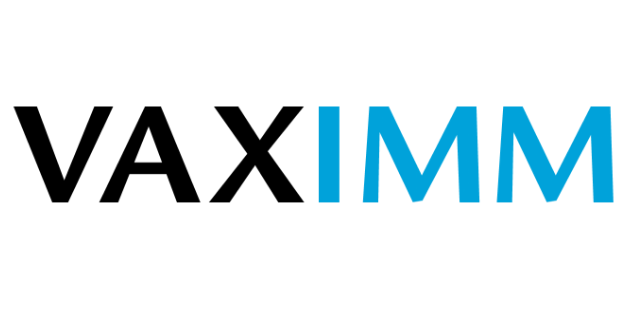
VAXIMM AG, a Swiss/German biotech company focused on developing oral T-cell immunotherapies, today announced that the Company's lead product candidate, VXM01, has received orphan designation from the European Commission and from the US Food and Drug Administration (FDA) for the treatment of glioma, a difficult-to-treat form of brain cancer. Orphan designation is designed to encourage the development of drugs to treat rare diseases and conditions and provides companies with certain incentives, including periods of market exclusivity upon approval, as well as user fee reductions or exemptions. The designation by the European Commission is for the treatment of glioma and by the US FDA for the treatment of malignant glioma.
"We are excited to have received orphan designation from both the European Commission and the US FDA, important achievements in the development of VXM01 to treat brain tumors, a challenging-to-treat cancer indication," said Matthias Schroff, Ph.D., Chief Executive Officer of VAXIMM. "We have seen strong initial results in a Phase I trial of VXM01 in patients with recurrent glioblastoma. In May, we entered into a collaboration with Merck KGaA, Darmstadt, Germany KGaA and Pfizer to evaluate, through Phase I/II clinical studies, the combination of VXM01 with avelumab to treat glioblastoma and colorectal cancer. We look forward to continuing the development of our novel immunotherapy to treat these devastating tumor types."
Phase I results in glioblastoma, a type of glioma, were presented at the American Society of Clinical Oncology (ASCO) 2017 Annual Meeting on June 5, 2017. The trial was designed to evaluate the safety and tolerability of, as well as clinical and immunogenic response to, VXM01 in patients with recurrent glioblastoma whose disease had progressed following treatment with at least radiochemotherapy including temozolomide, the standard of care. The reported data were from eight patients who were given a single dose of VXM01 on days 1, 3, 5 and 7 before planned surgery on day 35. Following surgery, patients could then receive a single administration every four weeks during the follow-up period. Median dosage was seven vaccinations.
Surgery was performed on seven of the treated patients. One patient experienced an objective and durable response, and three other patients had stable disease. Additionally, peripheral immune responses were observed, and five of seven patients had an increase in CD8+ T-cells in tumor tissue following re-operation compared to the primary tumor tissue. Four out of eight patients showed a specific T-cell response. In addition, in four patients a relevant increase in cerebral blood volume and apparent diffusion coefficient on post-vaccination MRI was observed. VXM01 was shown to be well tolerated.
The European Medicines Agency (EMA) examines the applications for orphan designation in the European Union and facilitates the development and authorization of medicines for rare diseases. The European Commission is responsible for granting orphan designation, which includes access to centralized marketing in the European Union, ten years of protection from market competition with similar medicines in similar indications and fee reductions for regulatory activities.
In the US, orphan-drug designation qualifies the sponsor of the drug for various development incentives, including tax credits for qualified clinical testing, waiver of user fees and potentially up to seven years of market exclusivity for the given indication, if approved.
About glioblastoma:
Gliomas, including glioblastoma, are potentially deadly forms of brain cancer. Glioblastoma can be difficult to treat because the tumors contain many different types of cells. According to recent statistics, in Europe (EU-27) there were estimated to be more than 42,000 cases of brain and nervous system tumors and over 32,000 deathsi. In the US, there were over 21,000 cases and over 15,000 deaths.ii Radiation and chemotherapy may be used to slow the growth of glioblastomas that cannot be removed with surgery.iii However, according to the American Association of Neurological Surgeons, patients typically die in the first 15 months after diagnosis.iv Thus, there is an urgent need to find more effective treatment options.
About VXM01:
VXM01 is an oral T-cell immunotherapy that is designed to activate T-cells to attack the tumor vasculature, and, in several tumor types, attack cancer cells directly. It is based on a live attenuated, safe, orally available, bacterial vaccine strain, which is modified to carry vascular endothelial growth factor receptor-2 (VEGFR2) as the target gene. VXM01 stimulates the patient’s immune system to activate VEGFR2-specific, cytotoxic T-cells (so-called killer cells). These immune killer cells then actively destroy cells in the tumor vasculature, leading to an increased infiltration of various immune cells into the tumor. In several tumor types, including brain cancer, VEGFR2 is highly over-expressed on the cancer cells themselves. In preclinical studies, a murine analog VXM01 vaccine showed broad anti-tumor activity in different tumor types. This activity was linked to a VEGFR2-specific T-cell response and was accompanied by the destruction of the tumor vasculature and increased immune cell infiltration. In a Phase I double-blind, randomized, placebo-controlled study in 71 patients with advanced pancreatic cancer, VXM01 appeared to be safe and well tolerated and led to the activation of VEGFR2-specific cytotoxic T-cells, which was associated with significantly improved patient survival. VXM01 is also being studied for the treatment of colorectal cancer and glioblastoma.
About VAXIMM:
VAXIMM is a privately held, Swiss/German biotech company that is developing oral T-cell immunotherapies for patients suffering from cancer. VAXIMM’s product platform is based on a live attenuated, safe, orally available bacterial vaccine strain, which is modified to stimulate patients’ cytotoxic T-cells to target specific structures of the tumor. VAXIMM’s lead product candidate, oral VXM01, activates killer cells targeting tumor-specific vasculature and certain immune-suppressive cells, thereby increasing immune cell infiltration in solid tumors. VXM01 is currently in clinical development for several tumor types, including pancreatic, colorectal and brain cancer. In addition to VXM01, VAXIMM has a pipeline of complementary development candidates targeting different tumor structures. VAXIMM’s investors include BB Biotech Ventures, M Ventures, Sunstone Capital and BioMed Partners. VAXIMM AG is headquartered in Basel, Switzerland. Its wholly owned subsidiary, VAXIMM GmbH, located in Mannheim, Germany, is responsible for the Company’s development activities. For more information, please see www.vaximm.com.
Contact:
VAXXIM AG
Dr. Matthias Schroff (CEO)
Tel.: +49 621 8359 687 0
Email:info@vaxxim.com
Media Inquiries:
MC Services AG
Katja Arnold, Laurie Doyle
Tel.: +49 89 210228 0
Email: vaximm@mc-services.eu

